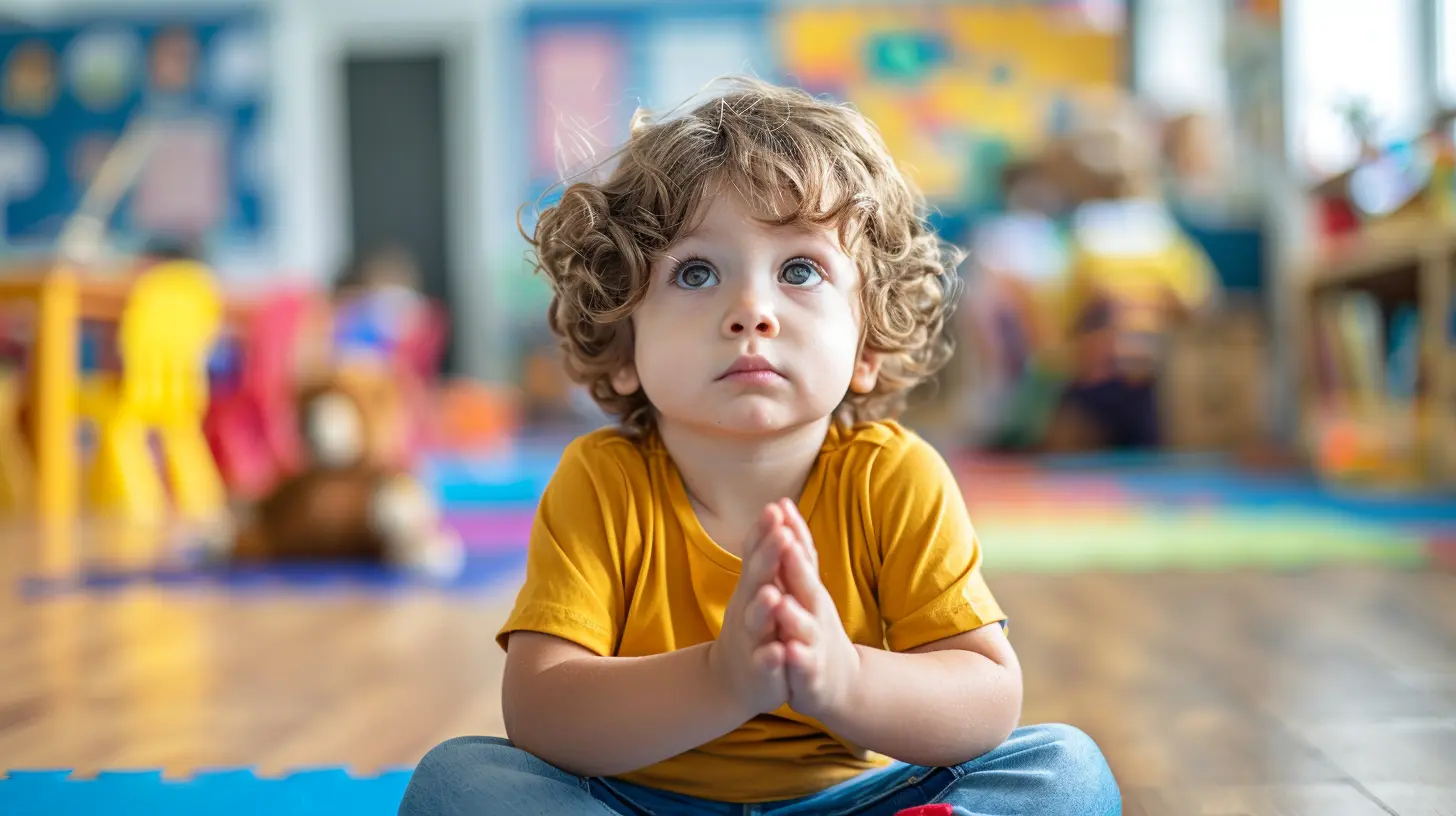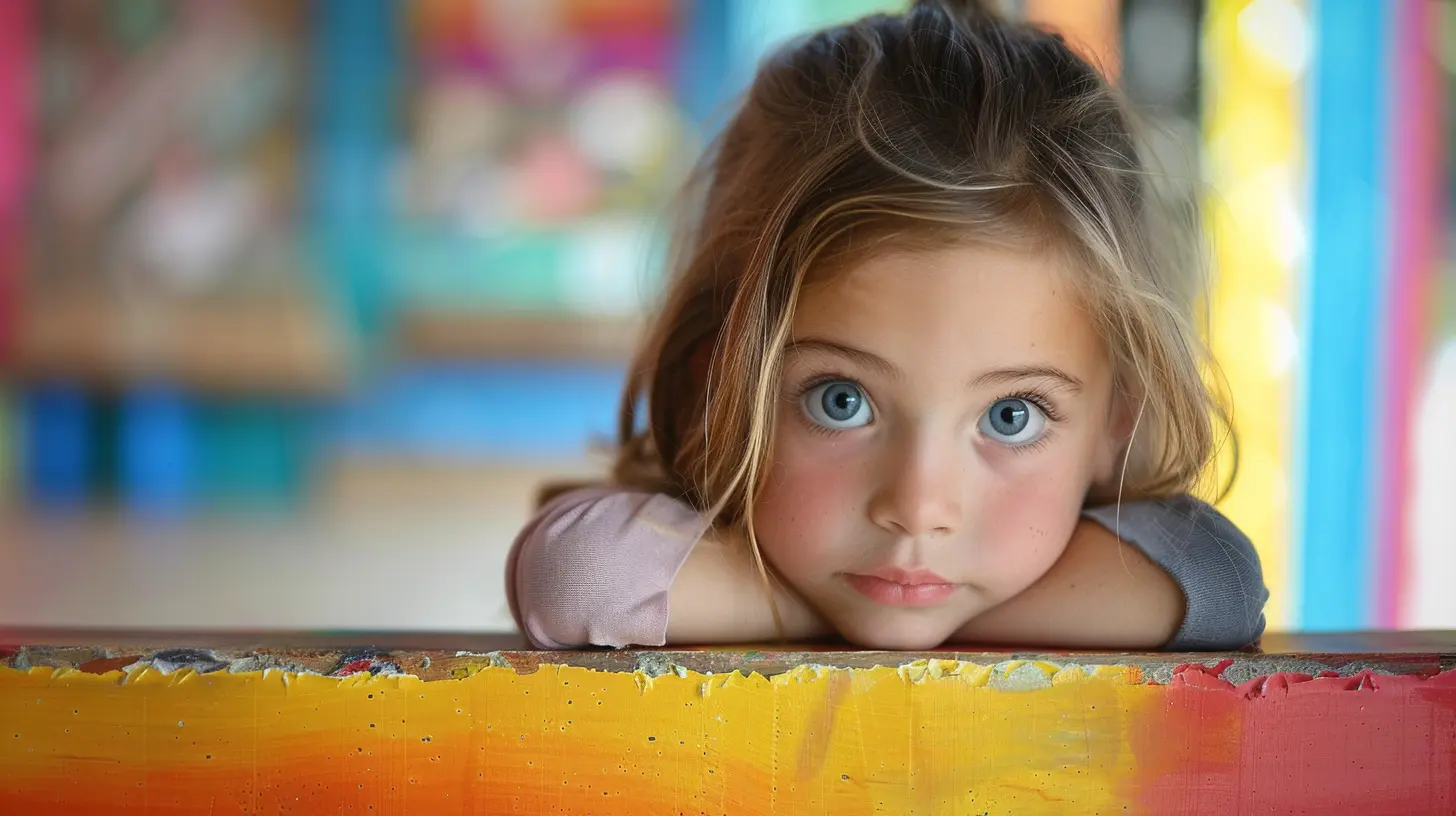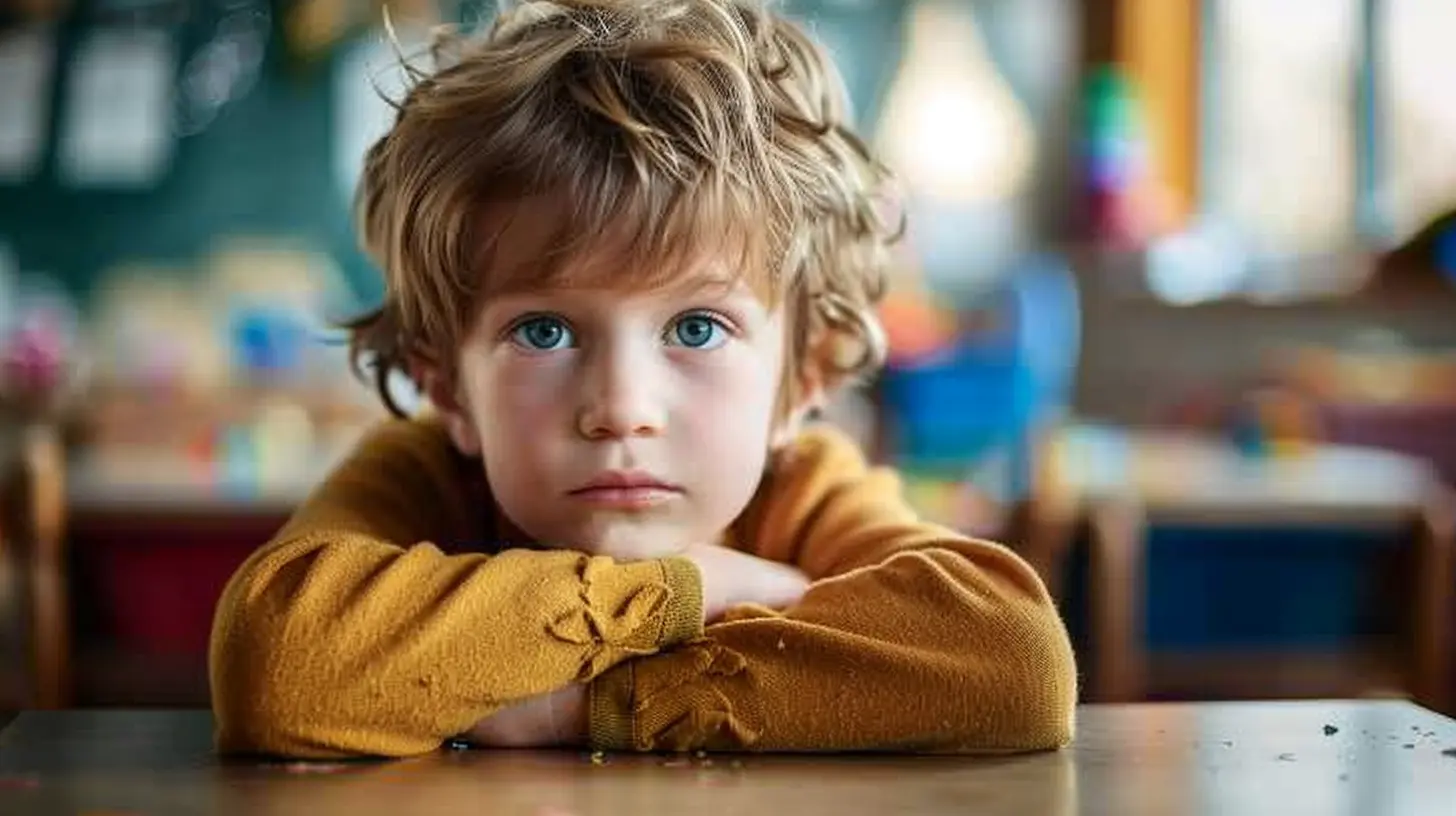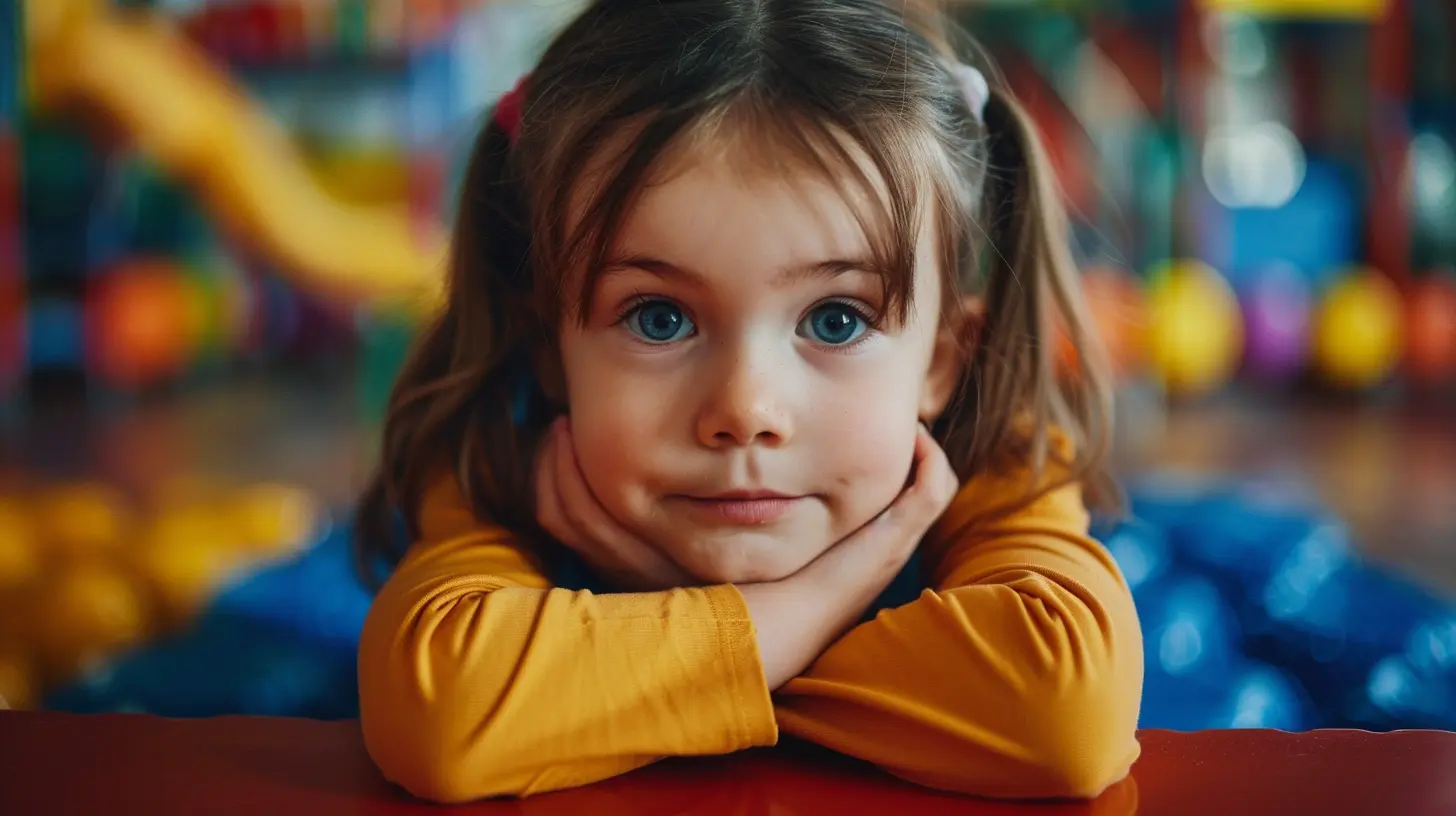11 July 2025
Starting preschool is a huge milestone for kids and parents alike. But let's be honest—while some little ones march into their new classroom without a care in the world, others cling to their parents with all their might, tears streaming down their faces. If this sounds familiar, you're not alone. Separation anxiety in preschoolers is completely normal, but that doesn't make it any easier to deal with.
So, how can you help your child (and yourself) navigate this emotional rollercoaster? Let’s break it down and find ways to make those morning goodbyes a little less heartbreaking. 
What Is Separation Anxiety?
Separation anxiety is when a child becomes distressed when they're away from their caregiver. It often starts in infancy and can continue into the preschool years. While some kids outgrow it quickly, others struggle with the transition, especially in new environments like preschool.It’s not just about missing a parent—it’s about feeling uncertain, scared, or even overwhelmed by a new setting. Preschool represents a huge change in their tiny world, and for some kids, that change feels downright terrifying. 
Why Do Preschoolers Experience Separation Anxiety?
There are several reasons why a preschooler might have difficulty separating from a parent:- Fear of the unknown – Preschool is a brand-new experience, and new experiences can be intimidating.
- Strong attachment to caregivers – Your child has built a secure bond with you, and leaving feels unnatural to them.
- Developmental stage – At this age, children are learning independence, but they still crave security.
- Changes at home – A big life change (like moving, a new sibling, or a family separation) can make goodbyes even harder.
Understanding the root of your child’s anxiety is the first step in helping them work through it. 
Signs of Separation Anxiety in Preschoolers
Not all kids show their anxiety in the same way. Some may cry the moment you walk away, while others may have more subtle signs. Here are some common behaviors to look for:- Crying, screaming, or clinging at drop-off
- Refusing to participate in activities
- Complaints of stomachaches or headaches (which can be stress-related)
- Nightmares or trouble sleeping
- Avoiding talking about school
If your child exhibits any of these, rest assured—it’s a common phase, and with the right strategies, it will get better. 
How Long Does Separation Anxiety Last?
Every child is different. For some, separation anxiety fades within a few days or weeks. For others, especially those already prone to anxiety, it can take longer. The key to helping your child through this phase is consistency, patience, and reassurance.Most preschoolers adapt with time, but if the anxiety persists for months or significantly interferes with daily life, it may be worth consulting a pediatrician or child psychologist.
How to Help Your Preschooler Cope with Separation Anxiety
Now, let’s talk about the practical stuff—how can you make drop-offs smoother and mornings less stressful?1. Talk About It in Advance
Prepare your child days (or even weeks) before preschool starts. Read books about going to school, talk about what they’ll do, and remind them that you’ll always come back to pick them up.2. Keep Goodbyes Short and Sweet
The longer you linger, the harder it gets. Give a quick hug, a confident smile, and a reassuring “I’ll see you soon!” Then walk away. If your child senses hesitation from you, they’ll think something really is wrong.3. Create a Goodbye Ritual
A special handshake, a high-five, or a silly phrase only you two share can provide comfort. Kids love routines because they create a sense of security.4. Bring a Comfort Item
Some preschools allow kids to bring a small comfort item (like a favorite stuffed animal or a photo of the family). This can act as an emotional security blanket until they feel more comfortable in their new environment.5. Make Drop-Offs Fun
Instead of rushing, turn drop-offs into a positive experience. Play their favorite song in the car, talk about what they’re excited to do that day, or have a playful race to the classroom door.6. Acknowledge Their Feelings
Saying “You're fine, don’t cry” might not be helpful. Instead, try, “I know you’re feeling sad right now, and that’s okay. But your teacher will take good care of you, and I’ll be back soon!” Validating their feelings makes them feel heard while reassuring them that they’re safe.7. Stay Consistent
Consistency builds trust. Drop them off at the same time, in the same way, each day. When kids know what to expect, their anxiety often decreases.8. Be Mindful of Your Own Emotions
Kids pick up on parental anxiety. If you’re nervous or guilty about leaving them, they’ll feel it too. Stay calm, confident, and upbeat—even if you’re faking it at first!What If the Tears Don’t Stop?
Sometimes, despite all your efforts, your child still sobs at the door. It’s heartbreaking, no doubt. But remember—many kids stop crying within minutes of their parents leaving.If the crying persists for extended periods or escalates over time, talk to their teacher. Often, experienced preschool teachers have comforting strategies to help kids adjust.
Also, keep an eye on how they behave after school. If they come home happy and chat about their day, it’s a sign they're adjusting, even if drop-offs are still tearful.
When to Seek Professional Help
Mild separation anxiety is normal, but in some cases, it can turn into Separation Anxiety Disorder (SAD). This happens when anxiety becomes extreme and interferes with a child’s ability to function.Consider seeking help if:
- Your child remains severely anxious for months with no signs of improvement.
- They have extreme physical symptoms (like frequent vomiting or panic attacks).
- They refuse to go to school altogether.
A pediatrician or child psychologist can offer guidance and coping tools to make the process easier.
Final Thoughts
Separation anxiety in preschoolers is tough, but it doesn’t last forever. With patience, love, and a few smart strategies, your little one will eventually find confidence in their new environment.And remember, you're not alone in this—every parent has faced at least one tearful goodbye. Hang in there, stay consistent, and before you know it, your child will be running into their preschool classroom without a second glance!









Wynter McAllister
Separation anxiety in preschool is like trying to convince a cat to take a bath—full of drama and a bit of chaos! Embrace the wobbly moments and sprinkle in some silly songs. With patience, hugs, and a dash of humor, we can turn those tearful goodbyes into giggly adventures!
December 26, 2025 at 11:41 AM